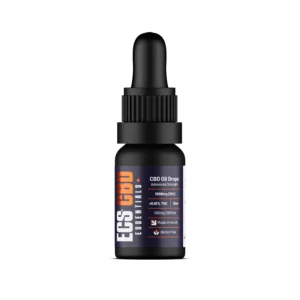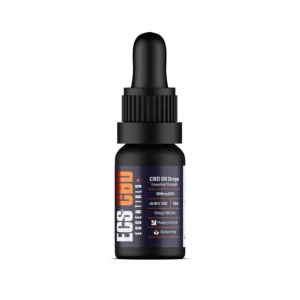CBD, or cannabidiol, has gained significant attention in recent years for its potential health benefits. Many people in the UK and around the world have turned to CBD products in search of relief from various health conditions, including anxiety, pain, and insomnia. But the question remains: does CBD actually do anything?
Research on CBD is still in its early stages, but there is evidence to suggest that it may have some therapeutic effects. CBD is one of over 100 cannabinoids found in the cannabis plant, and it interacts with the body’s endocannabinoid system, which plays a role in regulating various physiological processes, such as pain sensation, mood, and sleep.
One of the most well-known uses of CBD is for the treatment of epilepsy. In fact, the first FDA-approved CBD medication, Epidiolex, is used to treat two rare forms of epilepsy. Clinical trials have shown that CBD can reduce the frequency and severity of seizures in some patients, making it a promising option for those who do not respond to traditional antiepileptic medications.
In addition to epilepsy, there is also evidence to suggest that CBD may be helpful for anxiety. Several studies have shown that CBD can reduce symptoms of anxiety in both humans and animals. CBD appears to work by interacting with serotonin receptors in the brain, which are involved in regulating mood and anxiety. While more research is needed to fully understand how CBD affects anxiety, many people in the UK have reported feeling calmer and more relaxed after taking CBD.
CBD is also being studied for its potential pain-relieving properties. Some research suggests that CBD can reduce inflammation and pain by interacting with the body’s endocannabinoid system. This has led to interest in using CBD for conditions such as arthritis, chronic pain, and multiple sclerosis. While the evidence is still limited, many people in the UK have reported finding relief from pain after using CBD products.
Another area of interest is CBD’s potential role in improving sleep. Some studies have suggested that CBD may help regulate sleep patterns and improve sleep quality. By interacting with receptors in the brain that are involved in sleep-wake cycles, CBD could help promote relaxation and reduce insomnia. While more research is needed to confirm these effects, many people in the UK have reported experiencing better sleep after using CBD.
It’s important to note that CBD is not a miracle cure, and its effects can vary from person to person. Some people may find significant relief from CBD, while others may not experience any noticeable effects. The quality of the CBD product, the dosage, and individual factors such as metabolism and genetics can all influence how CBD affects an individual.
In the UK, CBD products are widely available, from oils and tinctures to capsules and edibles. It’s important to choose a reputable supplier and look for products that have been third-party tested for purity and potency. Starting with a low dose and gradually increasing as needed can help you find the right amount of CBD for your individual needs.
In conclusion, while more research is needed to fully understand the effects of CBD, there is evidence to suggest that it may have therapeutic benefits for conditions such as epilepsy, anxiety, pain, and sleep disorders. Many people in the UK have reported finding relief from these symptoms after using CBD products. If you are considering trying CBD, it’s important to consult with a healthcare provider to discuss the potential benefits and risks based on your individual health needs.











